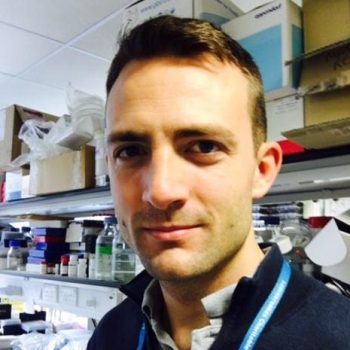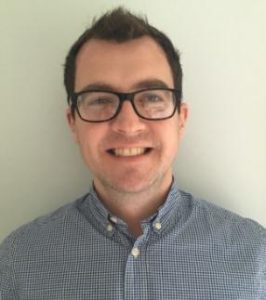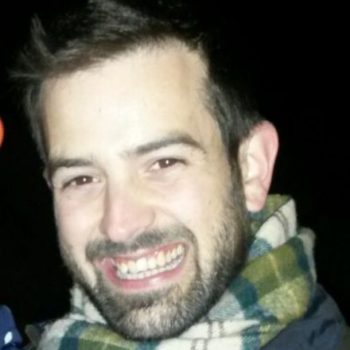Medical and Non Medical
Lynsey Spillman
Hepatology Dietitian
 Lynsey Spillman is a Hepatology and Liver Transplant Dietitian. Liver transplant cures liver disease with good long-term survival, however, there is increased risk of morbidity and early mortality due to diseases including diabetes, hypertension, dyslipidaemia, cardiovascular disease, overweight/obesity and osteoporosis. Immunosuppressive medications increase the risk of these conditions but unhealthy lifestyles may also contribute to their development and progression. Healthy eating and exercise may help to prevent or better manage these conditions. However, little is known about the diets and physical activity levels of patients after liver transplant, and whether this has an association with the development, progression and management of these conditions. Lynsey aims to determine the association between diet/exercise and metabolic conditions post-transplant, and develop and pilot an evidence-based healthy lifestyle education intervention for liver transplant recipients.
Lynsey Spillman is a Hepatology and Liver Transplant Dietitian. Liver transplant cures liver disease with good long-term survival, however, there is increased risk of morbidity and early mortality due to diseases including diabetes, hypertension, dyslipidaemia, cardiovascular disease, overweight/obesity and osteoporosis. Immunosuppressive medications increase the risk of these conditions but unhealthy lifestyles may also contribute to their development and progression. Healthy eating and exercise may help to prevent or better manage these conditions. However, little is known about the diets and physical activity levels of patients after liver transplant, and whether this has an association with the development, progression and management of these conditions. Lynsey aims to determine the association between diet/exercise and metabolic conditions post-transplant, and develop and pilot an evidence-based healthy lifestyle education intervention for liver transplant recipients.
During the fellowship Lynsey will complete a literature review; undertake patient and public involvement; become familiar with healthy lifestyle interventions used in other clinical areas; attend training in the development of complex interventions; investigate associations with diet, exercise and metabolic disease in liver transplant recipients; and develop the methodology for the research proposal.
Claire Adams
 Severe Insulin Resistance and Diabetes Nurse and Senior Research Nurse
Severe Insulin Resistance and Diabetes Nurse and Senior Research Nurse
Claire is a Specialist Severe Insulin Resistance & Diabetes Nurse and Senior Research Nurse with the National Severe Insulin Resistance Service and Wellcome Trust-MRC Institute of Metabolic Science. Claire’s research project investigates and seeks to ameliorate the psychological and quality of life impact of alterations in appearance occurring in patients with lipodystrophy and Segmental Overgrowth. Lipodystrophy and segmental overgrowth are rare conditions characterised by substantial changes to adipose distribution and function. The preliminary exploratory study that she conducted as part of her masters confirmed what is observed in clinical practice, that lipodystrophy can contribute to a negative body image. The concerns have been reported to cause a great deal of distress, with some putting this as a higher priority to them than the serious medical problems caused by the conditions.
Currently there is no support offered to patients to help them cope with the consequences of their visible difference in appearance. This lack of support has been highlighted as an issue by patients, at patient education days, through patient representative groups and within individual clinical consultations. Claire’s project will build on the initial qualitative data collected as part of her masters to establish a comprehensive analysis of the effects of appearance changes on quality of life and the type of support patients want. With this information Claire aims to develop (or adapt) and pilot-test an intervention to improve quality of life, depression, and self-management in these patients. The intervention may include cognitive behavioural strategies, social skills training, or acceptance and commitment therapy, and could be self-directed using a web platform.
Biljana Brezina
 Supervisor: Dr David Jayne, Department of Medicine, CUHFT and University of Cambridge
Supervisor: Dr David Jayne, Department of Medicine, CUHFT and University of Cambridge
Biljana is a qualified registered nurse and HPC registered biomedical scientist, working as a senior clinical trial coordinator in the vasculitis and lupus research group led by Dr. Jayne. For the last four years she has been coordinating an international trial of plasma exchange in vasculitis and last year completed an MSc course in clinical trial management.
Biljana now plans to take a central role in the development of a new research project focused on antibody depletion by using immunoadsorption (IAS) in patients with refractory systemic lupus erythematosus (SLE). SLE is a chronic autoimmune Inflammatory disease that is clinically variable but can be debilitating and life‐threatening. About one-third of patients do not respond to standard therapy, and there is low‐grade evidence from single centre studies that immunoadsorption (rapidly removing circulating antibodies) may be of benefit in this group.
During the fellowship Biljana will conduct a systematic review, assemble a network of European centres interested in this technique, and engage with a patient participation panel to help assess patient and carer support, the potential priority and patient benefits of this intervention. She will explore newer statistical methods of rare disease trials with small patient numbers and develop a randomised clinical trial proposal of IAS, which will form the basis of the application to NIHR.
Andrea Edwards
 Supervisor: Dr Topun Austin, Neonatal Services, CUHFT
Supervisor: Dr Topun Austin, Neonatal Services, CUHFT
Ms Edwards is a neonatal neurosciences research nurse with an interest in how sound affects cerebral oxygenation and sleep-wake cycles in preterm infants in the neonatal intensive care unit (NICU). Sleep-wake cycles are essential for brain growth and development, and the immature auditory system of preterm infants cannot readily filter unwanted sounds.
Her research will investigate the effect of sound on preterm infants using novel non-invasive methods such as near-infrared spectroscopy to measure cerebral oxygenation and amplitude-integrated EEG to measure sleep-wake cycles, and correlating these with noise levels inside the incubator and in NICU.
Ms Edwards will then look to decrease sound in the NICU, and determine if this makes a difference. Activities during the fellowship will include training, collection of pilot data, development of study methodology, and setting up a ‘Sound Awareness’ steering group.
Gillian Gatiss
 Supervisor: Dr Michael Allison, Clinical Director Liver Services, CUHFT
Supervisor: Dr Michael Allison, Clinical Director Liver Services, CUHFT
Mrs. Gatiss is a liver transplant dietitian. Patients with decompensated liver cirrhosis frequently have protein energy malnutrition, and those with ascites requiring large volume paracentesis are observed to rapidly decline nutritionally. In clinical practice patients’ energy requirements are calculated using predictive equations, which were developed in healthy individuals and use dry body weight, even though ascitic fluid may exert a metabolic effect.
Mrs. Gatiss plans to validate a portable calorimeter against ‘gold-standard’ indirect calorimetry, use the portable calorimeter to assess changes in resting energy expenditure in patients pre and post paracentesis over a 3 month period, and explore the patients’ experience of trying to meet nutritional requirements. Improved nutritional status in these patients may reduce infection and occurrence of ascites.
During the fellowship Mrs. Gatiss will train using indirect calorimetry, complete a literature review, conduct PPI, and develop the methodology for the proposal. In January 2017, Gillian won an an NIHR research award, read her story here
Emily Johnson
 Supervisor: Dr Kathryn Beardsall, University Department of Paediatrics; Honorary Consultant Neonatalogy; Dr Topun Austin, Neonatal services, CUHFT
Supervisor: Dr Kathryn Beardsall, University Department of Paediatrics; Honorary Consultant Neonatalogy; Dr Topun Austin, Neonatal services, CUHFT
Ms Johnson leads the paediatric speech and language therapy team, and her clinical work focuses in the neonatal intensive care unit (NICU). She is interested in the quality of neonatal feeding practices and the transition to oral feeding in neonates. Transition to oral feeding has an impact on neonatal outcomes, parental bonding, length of stay and discharge, and feeding difficulties after discharge. Despite its importance there is considerable variation in practice regarding neonatal assessment and progression of oral feeding, and little evidence to guide practice. During this fellowship Ms Johnson will undertake a systematic review regarding transition to oral feeding, survey practices across regional neonatal units, examine outcome data from national neonatal database and develop the methodology for her study on the progression of oral feeding for infants in NICU. The results of the study will be used to develop guidelines for transition to oral feeding.
Joshua Elias 
Supervisor: Prof Arthur Kaser
During my clinical gastroenterology training here in Addenbrooke’s Hospital I was inspired by the academic environment and encouraged to pursue my research interests. The Addenbrooke’s Charitable Trust (ACT) provided me with the opportunity to work towards a PhD through a one year Clinical Research Fellowship which I am currently undertaking in the Department of Medicine, supervised by Professor Arthur Kaser. My project focusses on understanding the pathogenesis of Primary Sclerosing Cholangitis (PSC), a disease in which the bile ducts become inflamed and narrowed leading to liver failure. PSC is also associated with a high risk of cancer of the bile duct and the bowel. The cause of PSC is unknown and there is currently no treatment available other than liver transplantation. By gaining a better understanding of the molecular mechanisms behind this disease we aim to develop new treatments and improve outcomes for patients. During this year I have gained valuable experience and generated pilot data with which I have secured a nationally competitive PhD fellowship from the Wellcome Trust.
Mark McClure 
Supervisor: Dr David Jayne
I am an ACT funded clinical research fellow working with Dr David Jayne and the vasculitis group at Addenbrooke’s Hospital. My primary role has been working on the upcoming COMBIVAS trial: a small, experimental medicine study to examine the biological effects of combination therapy with rituximab (anti-CD20) and belimumab (anti-BLyS) in patients with ANCA-associated vasculitis. This study is funded through the MRC/EMINENT programme: a novel collaboration between GSK and 5 major research centres in the UK, including Cambridge University. Through this post I have benefited from training in laboratory techniques and experimental medicine study conduct. We are working closely with GSK in the set up this trial which has given me great insight into the academic-industry interface and the benefits of this collaborative approach to medical research. I am planning to use trial data and concepts behind the trial to form the basis of my PhD thesis.
Ed Needham
Ed Needham 
Supervisors: Alasdair Coles, David Menon
I am a Clinical Neurosciences Research Fellow and Honorary Speciality Registrar in Neurology, with an interest in the contribution of maladaptive immune responses to outcomes following Traumatic Brain Injury.


